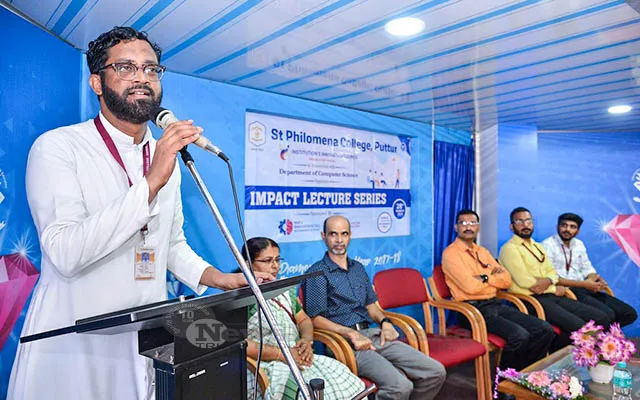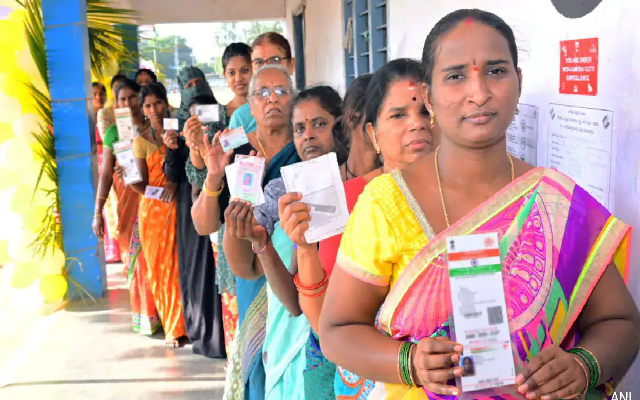
What you like, what you dislike, what you propound, what you propagate is all going to be under the scanner… for the greater good of course.
The Broadcast Engineering Consultants India Limited (BECIL) has floated a tender for monitoring social media on a large scale.
According to a Tender available on its website, the Information and Broadcasting Ministry is seeking agencies to facilitate social media monitoring on a large scale.
The tender was floated on 18th September with a rather quick turnaround of a week. As per a report by The Print. “Four companies have since expressed their interest”.

Picture credits: BECIL website
The tender requires the selected agency to do the following:
-
Monitoring
The proposal seeks for private agencies with the capability to provide an end-to-end solution, to crawl through public and private media and segregate these contents into problematic areas. Based on these labels, social media and individuals will be constantly monitored. Within the scope of the work also lies the need to find ‘actionable data’; to further identify the user, categorise this data, enable enterprise routing and perform the latest semantic analysis on that data. Generating reports about social media trends, reach and data analysis about social media posts also come under the purview of this proposal.
-
Early Warning Systems
The selected agency will also be required to create an ‘Early Warning System’ that signals and alerts about posts that contain the possibility of ‘having an adverse negative impact on the socio-economic fabric of the society’, The agency will be responsible for storing and making data collected accessible in both cloud-based and offline means.
-
User engagement
Besides, the agency will be responsible for managing multiple social media accounts for the government and engage users accordingly. This will also track individual social media users for their responses to posts and ‘track social media sentiments’. These agencies will also create and promote content including developing e-books as part of their job requirement.
-
Listening Tool
One of the unnerving aspects is the request to develop a Listening Tool. Though the tender does not indicate what exactly is expected in this regard, a quick Google search will inform you that a social media listening tool is a tool that helps you see what is being said about your brand (in marketing parlance).
It helps you engage with consumers everywhere, and spy on the competition. In today’s world, keeping up with all social media platforms is a near-impossible task and tools like these provide you with a leverage point. In the hands of the government, the tool could infringe upon privacy rights of individuals; which the Supreme Court upheld in the case of Aadhar card.

Free Internet
Since its inception, the internet has been a free space, despite malicious attempts by corporations to override this freedom by cartelization and by governments to impose curbs on its use.
The Internet has opened a whole new range of possibilities for individuals, organizations, and governments, especially with the onset of social media.
Social media, helps us connect with individuals across the globe, monetize our talents by uploading content, build brands and stores for merchandise and most importantly express ourselves on a public platform.
Initially, this trend began with Facebook and as more and more versions of these social-network-based platforms began to emerge, people began to express suppressed/repressed emotions verbally and visually.
Social Media became a platform for public discourse which often became vitriolic creating enmity where there was amity and hatred where there was love. It was also used to influence thinking and emotions, because of the nature of its patrons and its usage. The need for approval on Social Media overran self-confidence and self-assurance that existed prior.
The free space also allowed individuals to be anonymous; to develop alternate personalities, secret identities and face fewer consequences. It opened a plethora of socially destructive activities like cyberbullying and posts that promoted hatred of one or the other individual or community, that has led to the death of individuals and riling up of communities in the real world. This feature of the internet has always drawn heavy criticism from the public.
In August 2020, Bengaluru witnessed a horrific display of violent emotion from a section of the populace that was enraged by a social media post that hurt religious sentiments. Further investigations conclude – though the final word is yet to be heard on this – that the riots were pre-planned, and the alleged original uploader of the derogatory post is in custody while the investigation is ongoing.

While this is not a censorship exercise but a monitoring exercise and the intent is apparently noble – to prevent misuse – the crux of the issue is that the government of the day will be the one to determine what is misuse.
The recent example of the controversy surrounding the selective application of Facebook’s community guidelines in favour of the government representatives as a means to get into their good books, as reported by the Wire quoting an article in the Wall Street Journal is but a case in point
Without doubt, in today’s competitive environment, no agency can be immune to government pressure to protect government interests, whatever they may be. While most social media companies are expected to self-monitor and censor hateful content, based on the report, it is evident that these companies cannot be trusted to be neutral in their approach for their own vested interests.
So, what will be the cost of this covert censorship in terms of privacy and the availability of authentic information is a question that can and should be asked.

Privacy Rights
Though India has a law to regulate cybercrime under the Information Technology Act 2000 which was amended in 2008, India does not have a full-fledged privacy law as yet.
The only consideration provided to privacy in the public virtual world is provided by Sec 43a of the IT Act, whereby, the government has the authority to penalise a corporate body for leaking private information; there are no laws to protect the user from government-monitoring his personal activity online.
Recently, without regard to the privacy of individuals, several media organizations conducted very public media trials of celebrities, quoting from their private instant messaging chats which interestingly were not in the public domain except by way of leaks and messages going around on Social Media.
While the right to privacy is an inalienable right, we must ponder if are there specific instances where the government should be enabled to interject into our private lives.
This tender is perhaps a wakeup call to protect privacy before it evaporates. There is an urgent need for a very stringent privacy law, like the ones they have in the west. But it is also a warning to all those who want to use social media for purposes other than for what it was created – amity and friendship.


















